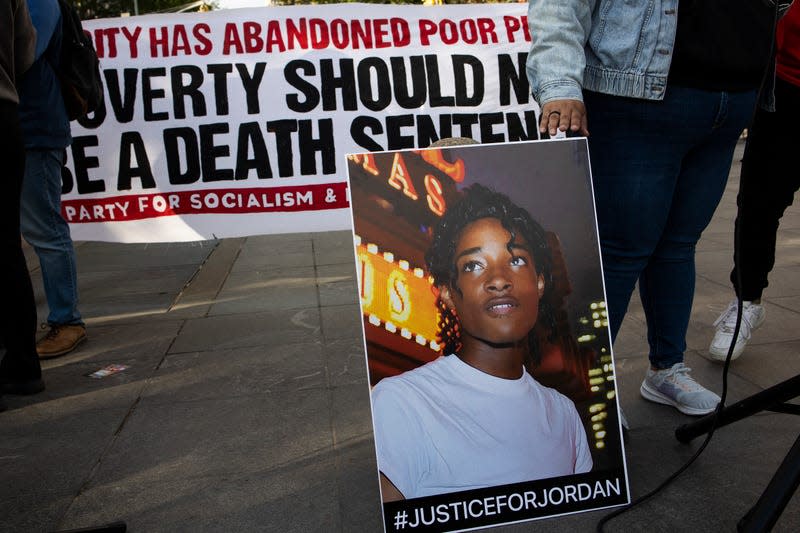Did Eric Adams And Other New York Leaders Fail Jordan Neely?

- Oops!Something went wrong.Please try again later.
It’s been a week since Jordan Neely was killed by a white ex-Marine Daniel Penny inside a New York Subway car. The 30-year-old Black Michael Jackson impersonator was held down by several passengers and choked to death while an on-looker filmed. Jackson, who was unhoused, was screaming that he was “hungry” and “thirsty” shortly before he died.
Amid widespread grief over this senseless tragedy, some New Yorkers have felt that city leaders, including Mayor Eric Adams, failed to properly condemn Neely’s killer. Adams’ initial statements focused almost entirely on Neely’s mental health and not on the fact that an unarmed Black man, who witnesses said had not harmed anyone, was killed in broad daylight.
Read more
Aside from Halle Bailey, Here Are Other Black Disney Actors and Characters We Love [Update]
Megan Thee Stallion Becomes 1st Black Woman to Land Forbes 30 Under 30 Cover
15 Priceless Black Twitter Moments Worth Remembering [Updated]
Jullian Harris-Calvin, Director of the Greater New York Justice Program at The Vera Institute, says that Adams and other city leaders have done more than just miss the mark; their actions helped lead to Neely’s death.
“All of this fear-mongering and misinformation that we’ve heard from a lot of our elected leaders and law enforcement leaders around crime and violence in the city has really led to these kinds of really tragic events like Jordan Neely’s death,” says Harris-Calvin.
Rather than take a compassionate approach to dealing with homelessness and mental health, Harris-Calvin says the Adams administration has pushed a jail and law enforcement first approach. “If the messaging was sympathetic and empathetic and really addressed the nuances of homelessness and mental health concerns,” she says. “folks likely wouldn’t feel so threatened that they felt they needed to take this kind of physical force against someone that they saw who was clearly mentally unstable.”
Local politicians, including New York City Council Member Tiffany Cabán, have shared similar sentiments. “This is the inevitable outcome of the dangerous rhetoric of stigmatizing mental health issues, stigmatizing poverty, and the continued bloated investment in the carceral system at the expense of funding access to housing, food, and health,” said Cabán in an interview with Politico.
In a statement to The Root, Mayor Adams responded to the critiques by expressing sympathy for Neely and his family. “This is an incredible tragedy, and my deepest sympathies are with the Neely family. Jordan Neely’s life was tragically lost, and his family and our city are dealing with the emotional impact of this matter,” wrote Adams.
However, Harris-Calvin says that this isn’t just about rhetoric. This is also about public policy. Flooding the subways with police signals to people that they’re unsafe and need to defend themselves, she says. (New York City actually has a lower violent crime rate than the national average). The billions spent on cops also takes away from spending on resources that could have actually benefited someone like Neely or a passenger trying to help him, she says.
“If we had put that money into housing people, giving them supportive services, having peer workers who cost a lot less than police officers, had them on the platform doing outreach and connecting people to services,” says Harris-Calvin, “maybe Jordan nearly wouldn’t have been in the condition he was in.”
More from The Root
A Supersized List of March 2023 Books by Black Authors We Can't Wait to Read
19 Political Karens Caught in Their Own Lies, Nonsense and Racism
Sign up for The Root's Newsletter. For the latest news, Facebook, Twitter and Instagram.

